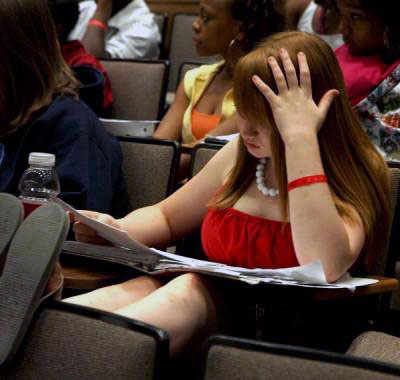All Nonfiction
- Bullying
- Books
- Academic
- Author Interviews
- Celebrity interviews
- College Articles
- College Essays
- Educator of the Year
- Heroes
- Interviews
- Memoir
- Personal Experience
- Sports
- Travel & Culture
All Opinions
- Bullying
- Current Events / Politics
- Discrimination
- Drugs / Alcohol / Smoking
- Entertainment / Celebrities
- Environment
- Love / Relationships
- Movies / Music / TV
- Pop Culture / Trends
- School / College
- Social Issues / Civics
- Spirituality / Religion
- Sports / Hobbies
All Hot Topics
- Bullying
- Community Service
- Environment
- Health
- Letters to the Editor
- Pride & Prejudice
- What Matters
- Back
Summer Guide
- Program Links
- Program Reviews
- Back
College Guide
- College Links
- College Reviews
- College Essays
- College Articles
- Back
Do Curfews Keep Teens Out of Trouble
Do Curfews Keep Teens Out of Trouble?
The teenage years are marked by evaluating one’s values, experiencing different
outlooks, and a new found rebellious side. It is also a time when a teen becomes majorly
vulnerable to negative influences, and are brought into more dangerous scenarios. From the
parents side, this marks the period of their children’s adolescence, This means regular worrying
about their safety. Where they are, what they’re doing, who they’re with, are they okay. At this
point, ensuring teenagers’ security is necessary, and curfews are often seen as such a measure.
They have proved their efficient. At the same, are curfews really going to keep your teen out of
trouble?
The issue of teenage curfews is wildly debated in the U.S. The first and most important
reason for establishing curfews is children’s security. Typical curfews require that teenagers
under 18 years stay out of the streets and hopefully trouble around about 11 p.m. This is believed
to protect them from crimes committed after the sun goes down, also to keep them from violating
the law. For example, when New Orleans enabled a dusk-till-dawn curfew in 1994, the rates of
juvenile crime rates were reported to fall more than 20%. (New York Times)
However, curfews can be seen as a preventive measure which limits the rights of young
people and their freedom. This thesis is particularly supported by the fact that curfew violations
and the respective charges are among the most often committed juvenile crimes in the U.S. In
addition, there were repots claiming that police arrested more non-white teenagers for curfew
violations/ All this can cause a teen to believe that they have cross a line dividing them as
criminals, thus, such teenagers may start to see themselves as outlaws, which can contribute to
rebellion and committing more serious acts then just breaking curfew.(Scribd)
It is important for parents to remember that when establishing a curfew for their child is
that a teen misjudges perception of certain rules and that may cause them to misbehave in some
other way, this is proved by the research conducted by the University of Minnesota, according to
which teens tend to bristle against what they see as unfair (Global Post). Considering this,
parents should avoid the authoritarian style of establishing curfews; instead, they should have a
conversation with their teen that would be aimed at finding optimal conditions for a curfew that
would satisfy both sides. Also, flexible curfews tend to be more effective than rigid agreements.
In conclusion, I highly believe that curfews do not keep teens out of trouble. Teens have
so many opportunities to do bad things and ways to do them. Teens have windows, cars, friends,
access to drugs and alcohol. Though all teens may not be doing bad after curfew, the majority is
which ruins it for the ones who don’t do mischievous things. Teens are hard to control for the
most part and when a parent says no to them going to do something they find it easier to beg for
forgiveness then to ask for permission.
References
“ Curfews and Common Sense.” The New York Times. The New York Times, 11 June 1996. Web. 11 May.2015.http://www.nytimes.com/1996/06/11/opinion/curfews-and-common-sense.html
“The Benefits of teenage Curfew Laws.” Scribd. N.p., n.d. Web. 11 May. 2015. http://www.scribd.com/doc/31337946/The-Benefits-of-teenage-Curfew-Laws.
“The Effects of Teen Curfews.” Everyday Life. N.p.,n.d. Web 11 May. 2015. http://everydaylife.globalpost.com/effects-teen-curfews-2061.html.

Similar Articles
JOIN THE DISCUSSION
This article has 1 comment.

1 article 0 photos 2 comments